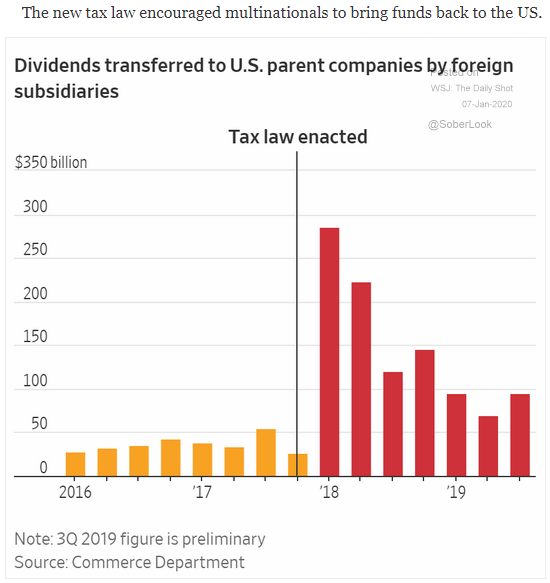U.S. companies have repatriated more than $1 trillion from foreign subsidiaries to their U.S. parents since 2017—more specifically, since the passing of the Tax Cuts and Jobs Act (TCJA). Unemployment has since seen record lows and consumer spending remains strong, despite ongoing weakness in manufacturing and trade. But companies quickly set another record with the additional funds. Do we owe them a “thank you” for reinvesting in American innovation and hiring, or did shareholders and company executives, and the companies themselves, reap most of the benefits? Either way, we may need to prepare for the dollar’s buying power to decrease after it recently broke through its multi-year downside support levels. Could that make it difficult for consumers to sustain current spending levels, kneecapping U.S. GDP, or will it benefit multinational corporations, further boosting share prices—especially for the top five stocks making up 18% of the S&P 500? We’ll be keeping our eyes on the trend to find out.
1. Cause…

Source: WSJ Daily Shot, from 1/7/20
2. …and effect…

Source: WSJ Daily Shot, from 1/7/20
3. There appears to be some momentum behind a weaker U.S. Dollar. Will this continue?

Source: WSJ Daily Shot, from 1/7/20
4. How long can the U.S. consumer keep spending?

Source: WSJ Daily Shot, from 12/30/19
5. …Because U.S. manufacturing will need time to recover from the trade wars…


Source: WSJ Daily Shot, from 12/30/19
6. Not exactly a shock:

Source: WSJ Daily Shot, from 12/30/19








